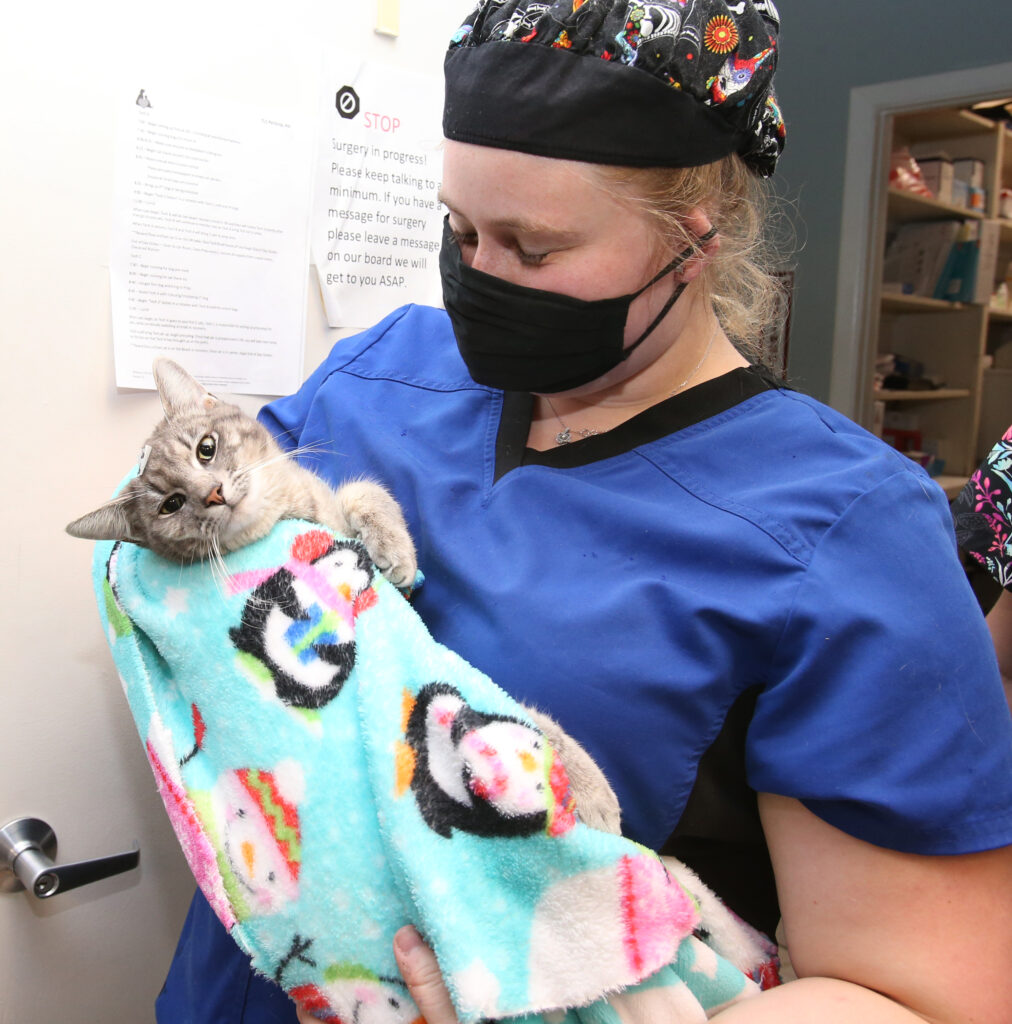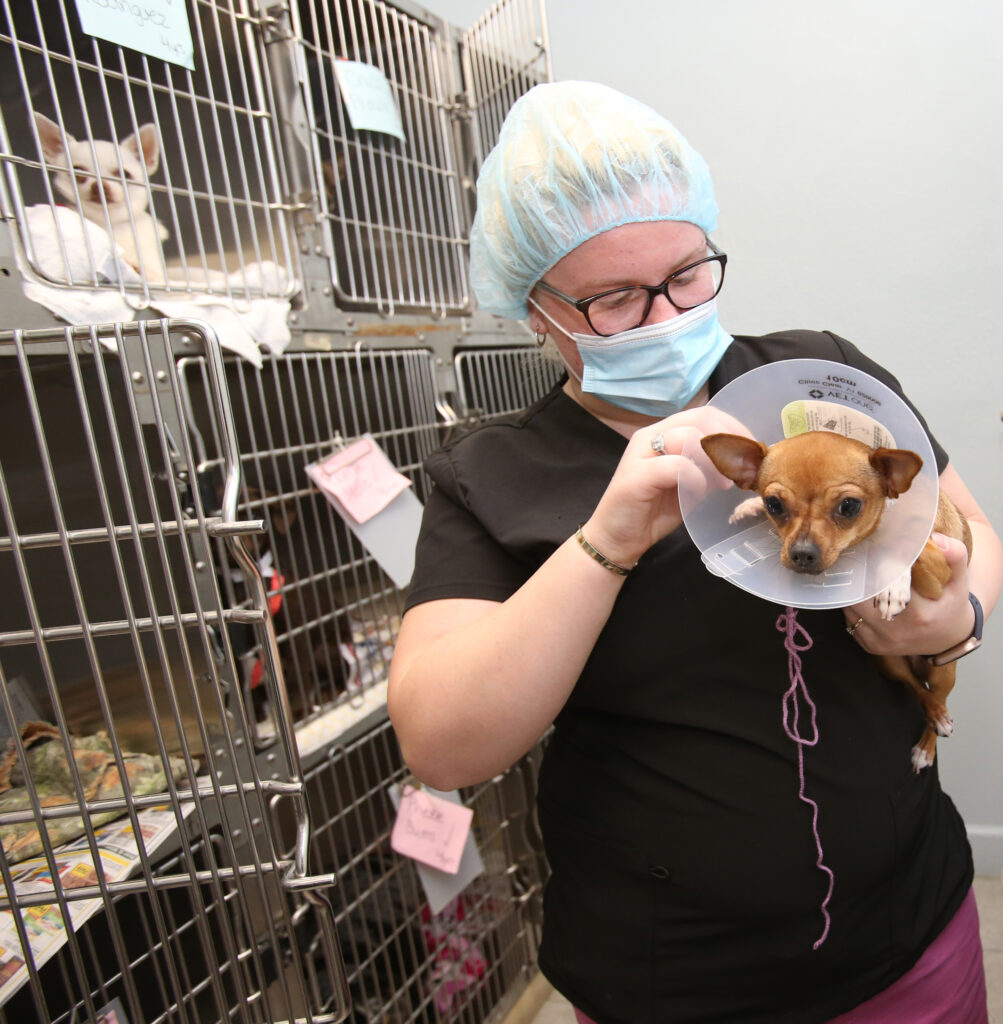Agencies work to reduce pet overpopulation

Hannah Chumney, a lead surgery technician from Lakeland, holds a cat as he gets groggy after being given an anesthesia before surgery at TLC Petsnip. [Bruce Ackerman/Ocala Gazette] 2021.

Hannah Chumney, a lead surgery technician from Lakeland, holds a cat as he gets groggy after being given an anesthesia before surgery at TLC Petsnip. [Bruce Ackerman/Ocala Gazette] 2021.
Solving pet overpopulation in Ocala and Marion County has long been a challenge, but a new partnership hopes to reduce those numbers.
The Humane Society of Marion County and TLC Petsnip are working together to cut the number of unwanted pets born every year.
The Humane Society, which has been active in the community for more than 50 years, is a nonprofit, no-kill shelter. TLC, a high-volume spay/neuter and wellness clinic, was founded in 2012 in Polk County and opened a facility in Ocala in 2018. They operate a third in Hillsborough County.
“TLC has a reputation of providing quality services at a discounted price. The HSMC saw an opportunity where we could subsidize spay and neuters through TLC. Therefore, they could do more surgeries on feral cats, as well as pit bulls, which make up for a large portion of the animals in our shelters. Each month, TLC provides us with a list showing how many animals received surgery with our funding,” said Eddie Leedy, executive director of the local Humane Society.
Lisa Gray, director of development for TLC, said the organization’s primary mission is to end euthanasia as a way of population control by making spay/neuter services affordable and accessible to every pet owner.
“Our partnership with the Humane Society of Marion County allows us to provide services to select groups each month at free or at greatly reduced prices,” Gray said. “We work collaboratively to provide pet care to the residents of Marion County.”
TLC PetSnip also provides spay/neuter services to the shelter’s animals before adoption. The Human Society’s donations helped pay for more than 2,000 sterilizations and other services at TLC.
“Together, we are working collaboratively to better the lives of pets in the county,” Gray said.

Kellsea Joles, a sterile technician, tends to a chihuahua mixed breed in the small dog post op recovery room after he was fixed at TLC Petsnip. [Bruce Ackerman/Ocala Gazette]
TLC also offers vaccines, heartworm treatment, preventative services and treats minor injuries and illnesses.
“We cater to a lower-income demographic,” Gray noted, “but our services are open to everyone.”
Leedy said that HSMC recently agreed to help pay for some minor surgeries or heartworm tests that clients can’t afford. Adopted Human Society animals get a free wellness exam. TLC provides some of those exams. The goal is to establish a relationship between a veterinarian and a new pet owner.
There are more than 365,000 people in Marion County, and estimates put the pet population at more than 150,000.
Besides the Humane Society and TLC, numerous other agencies work to help animals, including Marion County Animal Services, the Voices of Change Animal League and two branches of the Society for the Prevention of Cruelty to Animals, among others.
Before adopting a new pet, Leedy encourages people to learn as much as they can about an animal. He said the agency has a very successful “seniors for seniors” program to match older pets and owners. Before every adoption, Humane Society counselors work to match the right pet with the right person.
“Our goal is to assist the new owner in every possible way to assure the adoption is a success,” he said.
To learn more about the partnership between HSMC and TLC, visit thehsmc.org and tlcpetsnip.org.





